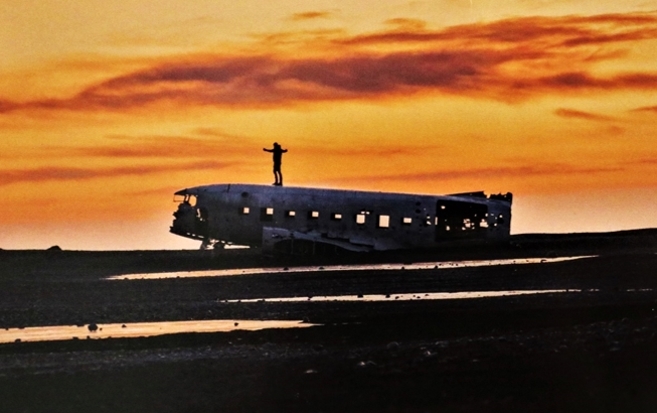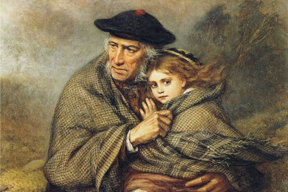In Camelot
If you want to view a near-total mess, look at Afghanistan today. Over the past two decades, there isn’t been much that the Americans and the NATO forces accomplished. Nevertheless, in one area, there has been a remarkable leap forward. Any girl born since 9/11 has grown up in a radically different world than their mothers, grandmothers, etc. Today, a twenty-year-old young lady in Afghanistan lived in a society that allowed women to work and get an education.
For the first time, a Muslim female had the opportunity to have a type of equality in the history of Afghanistan. There have been people living in the area of present-day Afghanistan for 50,000 years. The Silk Road went through Afghanistan two thousand years ago, but the name goes back a millennium. Regardless, it has been only in the last two decades that women have had any sort of equality with men.
Sexism and racism parallel each other. In both these negative -isms, one is born into that group, whether ethnic background or sexuality. The Taliban are against women working outside the home and getting an education. What once was but isn’t now was a brief moment of time for women in Afghanistan.
What happened in Afghanistan for twenty years was an Asian version of the Arthurian story of Camelot.
Don’t let it be forgot
That once there was a spot
For one brief shining moment that was known
As Camelot.
During the Afghani Camelot, the Taliban in Pakistan wanted to kill Malala Yousafzai along with her father. They thought that educating girls would ruin their society. The Taliban was correct; it would.
Malala was intent upon improving the Swat District of Pakistan. She wanted equality with men. As a result, Malala was the victim of a Taliban assassination attempt on October 9, 2012. Some Islamist Taliban shot her in the head at point-blank range.
Many of us talk the talk, but far too few of us walk the walk as well as Malala. Amazingly, Malala survived an inane Taliban assassination attempt. She survived, and two years later, on December 10, 2014, she was awarded Nobel Peace Prize for her determination to give women equality with men and allow girls to attend school.
Interestingly, it wasn’t long after her Nobel Peace Prize that President Obama welcomed Malala to America. President Obama faced down white racism and became president. Obama welcomed a young lady who faced down Taliban sexism and became an example for all women.

This photo was taken in the White House with Malia, Michelle, Malala, and the president.
The following is a special editorial that Malala did for the New York Times.
Malala: I Survived the Taliban.
I Fear for My Afghan Sisters.
August 17, 2021

Afghani girls and young ladies.
In the past two decades, millions of Afghan women and girls received an education. Now the future they were promised is dangerously close to slipping away. The Taliban — who until losing power 20 years ago barred nearly all girls and women from attending school and doled out harsh punishment to those who defied them — are back in control. Like many women, I fear for my Afghan sisters.
I cannot help but think of my own childhood. When the Taliban took over my hometown in Pakistan’s Swat Valley in 2007 and shortly thereafter barred girls from getting an education, I hid my books under my long, hefty shawl and walked to school in fear. Five years later, when I was 15, the Taliban tried to kill me for speaking out about my right to go to school.
I cannot help but be grateful for my life now. After graduating from college last year and starting to carve out my own career path, I cannot imagine losing it all — going back to a life defined for me by men with guns.
Afghan girls and young women are once again where I have been — in despair over the thought that they might never be allowed to see a classroom or hold a book again. Some members of the Taliban say they will not deny women and girls education or the right to work. But given the Taliban’s history of violently suppressing women’s rights, Afghan women’s fears are real. Already, we are hearing reports of female students being turned away from their universities, female workers from their offices.
None of this is new for the people of Afghanistan, who have been trapped for generations in proxy wars of global and regional powers. Children have been born into battle. Families have been living for years in refugee camps; thousands more have fled their homes in recent days.
The Kalashnikovs carried by the Taliban are a heavy burden on the shoulders of all Afghan people. The countries that have used Afghans as pawns in their wars of ideology and greed have left them to bear the weight on their own.
But it is not too late to help the Afghan people — particularly women and children.
Over the past two weeks, I spoke with several education advocates in Afghanistan about their current situation and what they hope will happen next. (I am not naming them here because of security concerns.) One woman who runs schools for rural children told me she has lost contact with her teachers and students.
“Normally we work on education, but right now we are focusing on tents,” she said. “People are fleeing by the thousands, and we need immediate humanitarian aid so that families are not dying from starvation or lack of clean water.” She echoed a plea I heard from others: Regional powers should be actively assisting in the protection of women and children. Neighboring countries — China, Iran, Pakistan, Tajikistan, Turkmenistan — must open their doors to fleeing civilians. That will save lives and help stabilize the region. They must also allow refugee children to enroll in local schools and humanitarian organizations to set up temporary learning centers in camps and settlements.
Looking to Afghanistan’s future, another activist wants the Taliban to be specific about what they will allow: “It is not enough to vaguely say, ‘Girls can go to school.’ We need specific agreements that girls can complete their education, can study science and math, can go to university and be allowed to join the work force and do jobs they choose.” The activists I spoke with feared a return to religious-only education, which would leave children without the skills they need to achieve their dreams and their country without doctors, engineers and scientists in the future.
We will have time to debate what went wrong in the war in Afghanistan, but in this critical moment we must listen to the voices of Afghan women and girls. They are asking for protection, for education, for the freedom and the future they were promised. We cannot continue to fail them. We have no time to spare.
This is a special video from the New York Times, Class Dismissed: Malala’s Story.
This video is Jon Stewart’s interview of Malala.
Follow @mountain_and_me












